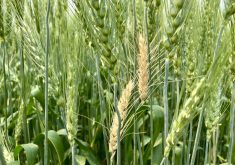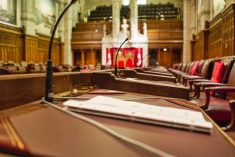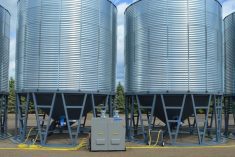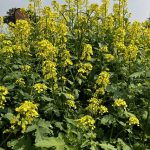The Manitoba government is gathering data to make the case for exempting grain drying fuels from the federal government’s carbon tax.
“So we’ll get the numbers together and then to (federal agriculture) Minister (Marie-Claude) Bibeau and we’ll continue to lobby on behalf of our ag producers,” Manitoba’s Agriculture and Resource Development Minister Blaine Pederson said in an interview Dec. 20.
“We’ll go to propane suppliers. We’ll be talking to KAP (Keystone Agricultural Producers) and trying to get a quantitative number. Minister Bibeau was open to looking at it — there was no commitment obviously because it goes to the finance department — but it is significant.”
Read Also
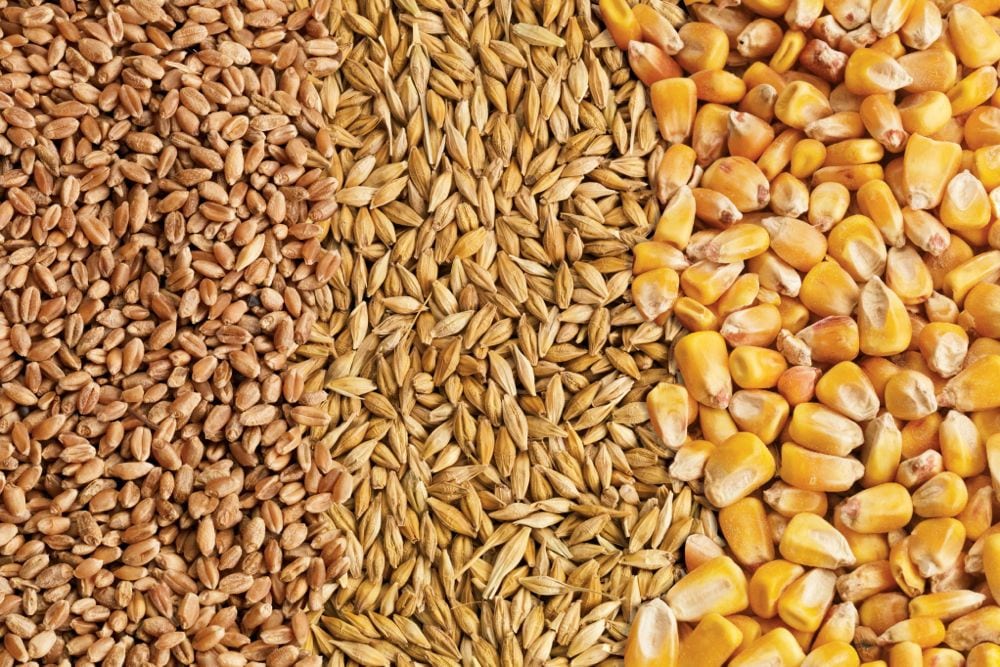
Feed Grains Weekly: More consideration being given to U.S. corn
There’s beginning to be a shift within the Canadian Prairie feed market towards importing United States corn, said Darcy Haley, vice-president of Ag Value Brokers in Lethbridge.
The diesel fuel and gasoline farmers burn in their equipment is already exempted from the carbon tax.
Due to late harvests from Alberta to Quebec a lot more grain is being dried, and also for longer periods because most of it is so wet.
“I know I have talked to a number of producers who were drying grain this year and the cost of the carbon tax on every fill up on their tank was substantial,” Pederson said.
Why it matters: The carbon tax is adding more cost to Canadian grain farmers at a time when their margins are already shrinking. Harvest delays across much of Canada lowered grain quality and forced farmers farmers to dry more grain than usual to keep it from spoiling.
Pederson spoke to Bibeau on the phone before federal, provincial and territorial agriculture ministers met in Ottawa Dec. 17.
Bibeau also met with Pederson and his Alberta and Saskatchewan counterparts Devin Dreeshen and David Marit before the formal start of the meeting to discuss the issue.
The federal government put a price on fossil fuels to discourage their use because they contribute to climate change Bibeau told reporters following the meeting.
“We want every industry to work towards decreasing the emissions,” she said. “At the same time we recognize the agricultural sector may face other types of challenges.
“I am open to evaluating that (grain drying exemption). I need to build a good case to go to my colleagues… but yes, I am open to advocate for that if we can make a good case.”
The case for an exemption isn’t hard to make, Homewood farmer Warren McCutcheon said in an interview Dec. 23, while finishing up the last of his 2019 corn harvest.
“The carbon tax on grain drying is frustrating and disappointing,” he said. “We are hurting our own industry. Even with the currency exchange, North Dakota corn farmers are paying less for their propane and don’t have to pay a carbon tax (of 3.91 cents a litre). North Dakota farmers will be selling their corn here in Manitoba and the carbon tax makes us uncompetitive.”
McCutcheon estimates the carbon tax on grain drying corn alone will cost his farm around $1,800 or about $3 an acre on 600 corn-acres.
Even if grain drying is exempted from the carbon tax, that’s just the tip of the iceberg, McCutcheon said, noting the tax will be part of the cost for many inputs and services farmers purchase.




